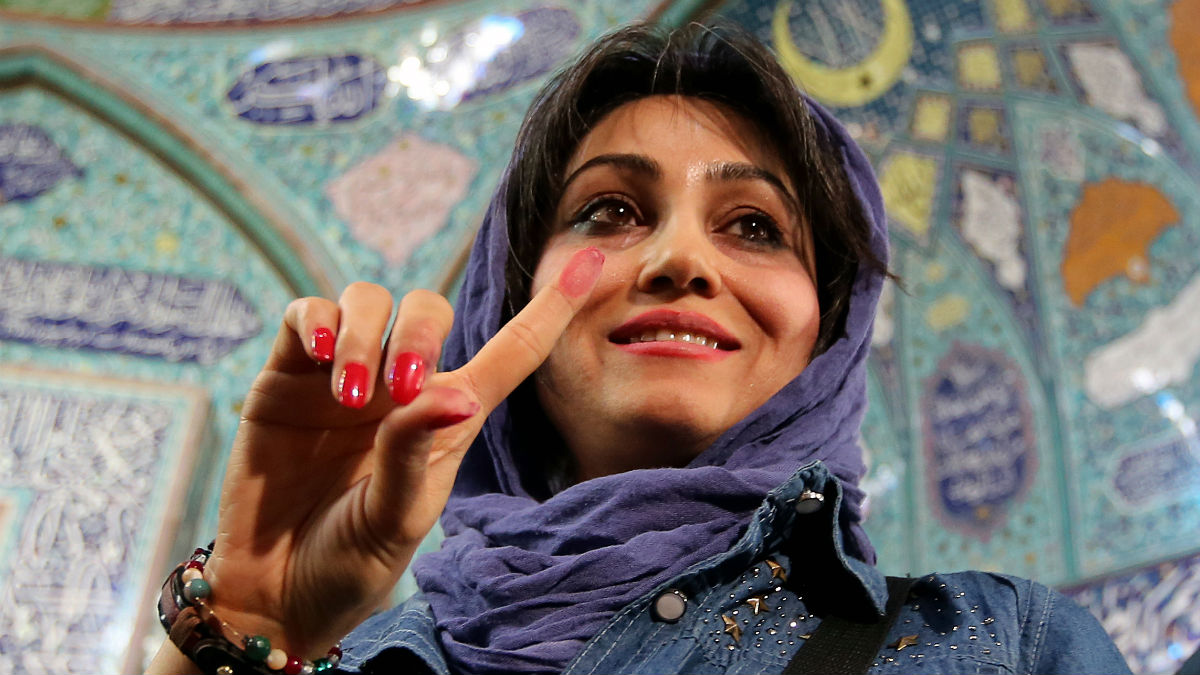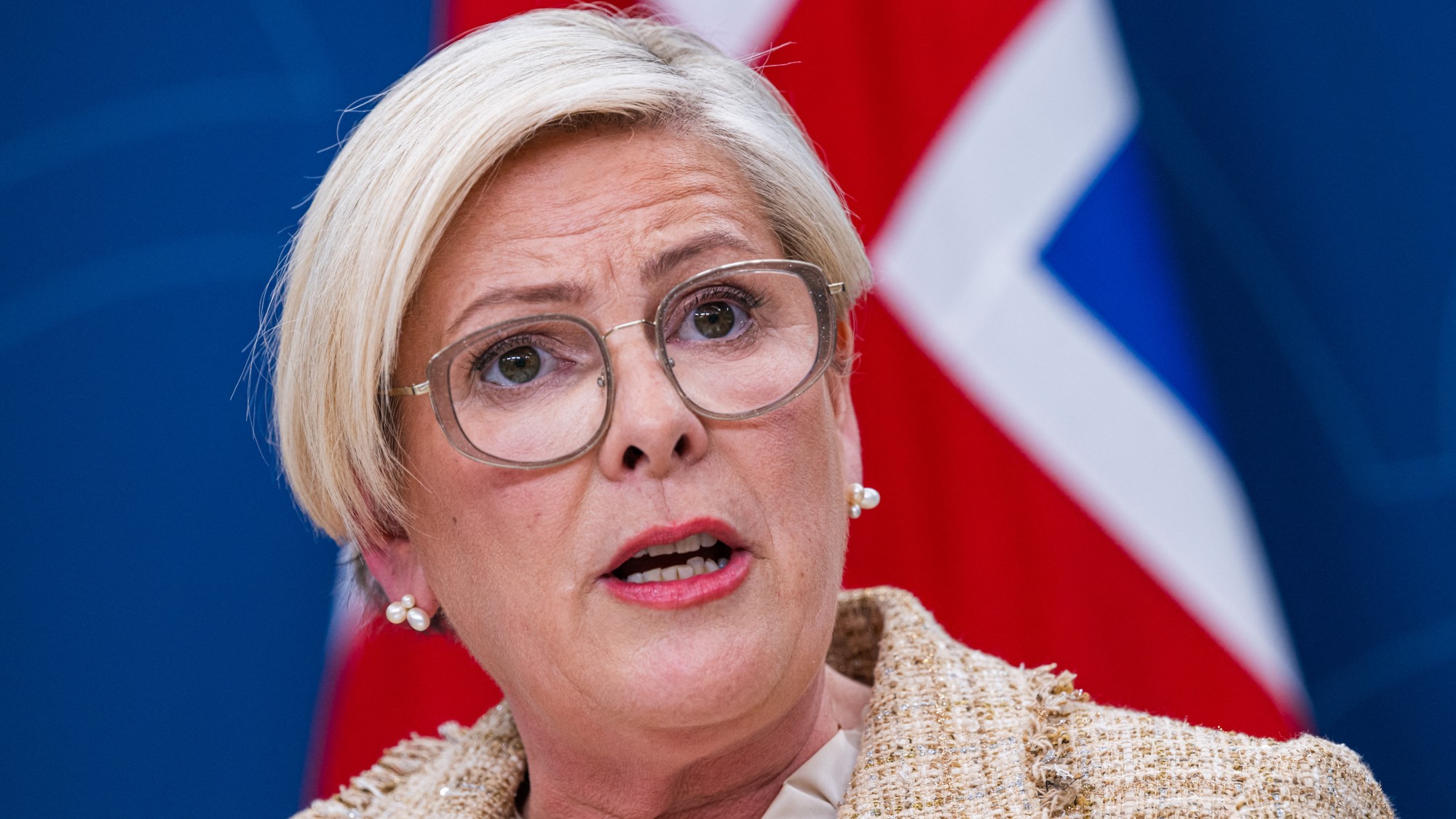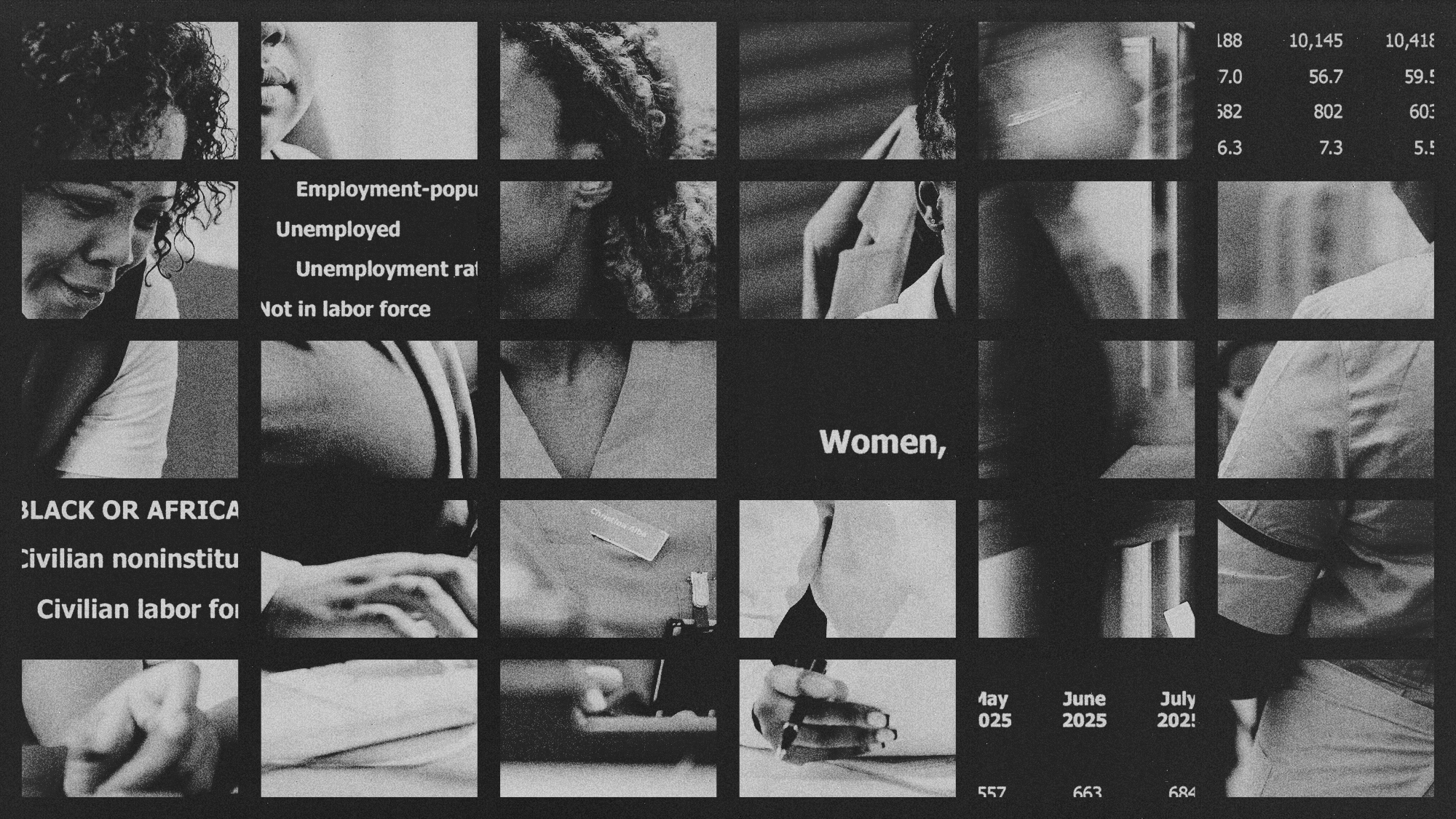Why are women less interested in politics than men?
New study shows girls are significantly less engaged than boys by the age of 15

A free daily email with the biggest news stories of the day – and the best features from TheWeek.com
You are now subscribed
Your newsletter sign-up was successful
Research has repeatedly found that men tend to show more interest in politics than women, but now a new study suggests that the gender gap begins before young people are even old enough to vote.
The analysis of data from the British Household Panel Survey revealed that among 15-year-olds, there is a 20-point gap between the percentages of each sex who expressed political engagement. And that grows to 30 points by the age of 25, say researchers Marta Fraile, of the Institute of Public Goods and Policies in Madrid, and Irene Sanchez-Vitores, of Italy’s European University Institute.
Across Europe as a whole, “declared interest in politics is 16% lower for women than for men”, according to the report. So why are women less interested in politics - and does it matter?
The Week
Escape your echo chamber. Get the facts behind the news, plus analysis from multiple perspectives.

Sign up for The Week's Free Newsletters
From our morning news briefing to a weekly Good News Newsletter, get the best of The Week delivered directly to your inbox.
From our morning news briefing to a weekly Good News Newsletter, get the best of The Week delivered directly to your inbox.
Why?
The most obvious explanation is skewed gender representation. The principle of “you can’t be what you can’t see” is well established in social sciences. Seeing people who look like ourselves in certain roles or careers makes us more likely to picture ourselves in those positions.
Women are still under-represented in parliaments, assemblies and cabinets across the world, raising the possibility that a lack of female role models discourages girls from viewing themselves as part of the political process.
Another explanation may be women’s tendency to underestimate their intelligence and abilities. A number of studies have shown that women typically self-report as being less knowledgeable about politics, yet a 2014 analysis of answers from voters when quizzed on political issues found that women were only slightly less likely than men to give a correct response - but far more likely to answer “don’t know”.
A free daily email with the biggest news stories of the day – and the best features from TheWeek.com
Given this apparent lack of confidence, it follows that women might also be less inclined to class themselves as interested in politics, believing that this implies a level of familiarity or expertise they are reluctant to claim.
Why does it matter?
A disengaged female electorate could have “harmful consequences” for women and for society at large, says The Economist.
If women are not equal participants in the political process, “their views - particularly on social issues like workplace equality, parental leave and child care, which they care about on average more than men do - may not be adequately represented in government”, the news site argues.
Does gender equality increase women’s interest in politics?
Yes, but it isn’t quite as neat as that. A 2017 study at the London School of Economics (LSE) indicated that there is a significant correlation, with women least likely to be interested in politics in countries that rank low on the European gender equality index. Meanwhile, the highest-ranking countries - Sweden, Finland, Denmark and the Netherlands - had some of the lowest gender gaps in political interest.
However, a comparably small gap was also seen in Hungary, Bulgaria and Lithuania, which all rank close to the bottom in the European Gender Equality Index. The narrowest gap of all was recorded in Estonia, which sits in the middle of the table, suggesting that gender equality alone is not a predictor of female political engagement.
What can be done?
Many equality campaigners argue that seeing more women in visible positions of power could increase female engagement in politics.
But this requires a supply of qualified and willing female candidates to run for office - a big ask in a society where teenagers are already showing a large gender gap in political engagement.
Early intervention is key to breaking this vicious circle, write Fraile, who also co-wrote the latest study, and Raul Gomez on LSE’s European Politics and Policy blog.
“Gender equality policies are usually designed to address gender differences between adults”, whereas “childhood socialisation may continue to be gendered even in countries with higher levels of gender equality”, the two researchers note.
Producing a society where “men and women are equally able and willing to participate in both the private and the public sphere” requires “revolutionary change”, not only in the way people live as adults but also “in… the way they raise their children”, they conclude.
Rebecca Messina is the deputy editor of The Week's UK digital team. She first joined The Week in 2015 as an editorial assistant, later becoming a staff writer and then deputy news editor, and was also a founding panellist on "The Week Unwrapped" podcast. In 2019, she became digital editor on lifestyle magazines in Bristol, in which role she oversaw the launch of interiors website YourHomeStyle.uk, before returning to The Week in 2024.
-
 The ‘ravenous’ demand for Cornish minerals
The ‘ravenous’ demand for Cornish mineralsUnder the Radar Growing need for critical minerals to power tech has intensified ‘appetite’ for lithium, which could be a ‘huge boon’ for local economy
-
 Why are election experts taking Trump’s midterm threats seriously?
Why are election experts taking Trump’s midterm threats seriously?IN THE SPOTLIGHT As the president muses about polling place deployments and a centralized electoral system aimed at one-party control, lawmakers are taking this administration at its word
-
 ‘Restaurateurs have become millionaires’
‘Restaurateurs have become millionaires’Instant Opinion Opinion, comment and editorials of the day
-
 How corrupt is the UK?
How corrupt is the UK?The Explainer Decline in standards ‘risks becoming a defining feature of our political culture’ as Britain falls to lowest ever score on global index
-
 ‘Implementing strengthened provisions help advance aviation safety’
‘Implementing strengthened provisions help advance aviation safety’Instant Opinion Opinion, comment and editorials of the day
-
 The high street: Britain’s next political battleground?
The high street: Britain’s next political battleground?In the Spotlight Mass closure of shops and influx of organised crime are fuelling voter anger, and offer an opening for Reform UK
-
 Is a Reform-Tory pact becoming more likely?
Is a Reform-Tory pact becoming more likely?Today’s Big Question Nigel Farage’s party is ahead in the polls but still falls well short of a Commons majority, while Conservatives are still losing MPs to Reform
-
 The Icelandic women’s strike 50 years on
The Icelandic women’s strike 50 years onIn The Spotlight The nation is ‘still no paradise’ for women, say campaigners
-
 Taking the low road: why the SNP is still standing strong
Taking the low road: why the SNP is still standing strongTalking Point Party is on track for a fifth consecutive victory in May’s Holyrood election, despite controversies and plummeting support
-
 Black women are being pushed out of the workforce en masse
Black women are being pushed out of the workforce en masseIN THE SPOTLIGHT Employment data shows hundreds of thousands of Black women have left the labor market over the past few months. What's behind this mass exodus?
-
 What difference will the 'historic' UK-Germany treaty make?
What difference will the 'historic' UK-Germany treaty make?Today's Big Question Europe's two biggest economies sign first treaty since WWII, underscoring 'triangle alliance' with France amid growing Russian threat and US distance